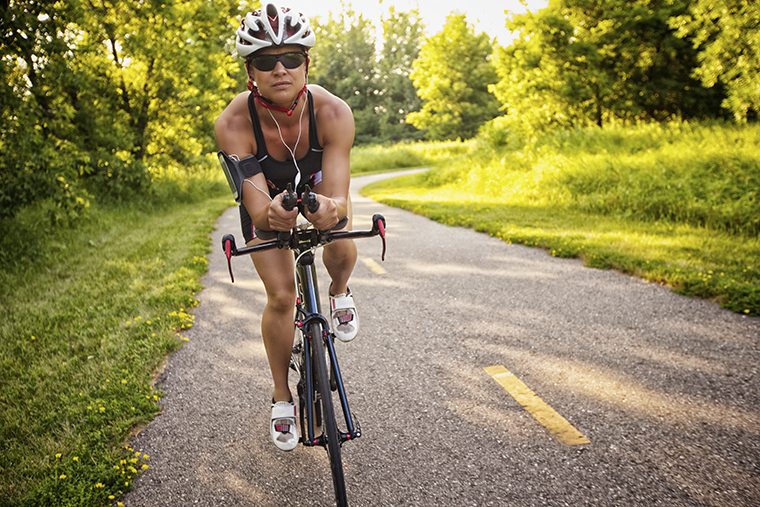Women on wheels
Women on wheels
February 24, 2014
As the city’s cycling population grows, more women are seeking female-friendly bike services.
A study by the League of American Bicyclists found women’s cycling gear and products accounted for a third of national transit and fitness sales in 2012, while the sale of women’s bicycles grew 20 percent from 2010 to 2012, outpacing the sale of men’s and children’s bikes. With growing interest in biking among women, some Chicago residents are displeased with the way female cyclists are treated in the city.
While the number of women bikers is rising, the trend hasn’t yet extended to all facets of Chicago’s biking community. Divvy, the city’s popular bike-share program, reported that 69 percent of customers are male, while 31 percent are female, said Elliot Greenberger, deputy general manager of Alta Bicycle Share, in an email. The company plans to increase its appeal to more women cyclists in the near future.
“Bike-share typically skews male, which is on par with our expectations for the first year of operations,” Greenberger said in the email. “Given that, we have some initiatives in development for this year to even that balance out and attract more women to biking.”
As the city’s bike share service makes efforts to accommodate the growing female cycling population, two entrepreneurs are also making strides. BFF Bikes, 2113 W. Armitage Ave., aims to set a new standard for the way women are treated when buying bicycles. The bike shop will be geared exclusively toward women, said Vanessa Buccella, co-owner of BFF Bikes. The growing population of female cyclists creates the need for a bike shop that better serves them.
“Bike shops stock the things that they know, use and like. So a lot of times when you have a bike shop that is owned by men, they may not have the first-hand experience in knowing the different products or items that women may be interested in because it’s not their perspective,” said Annie Byrne co-founder of BFF Bikes.
A women’s cycling shop is necessary because most Chicago bike shops are owned by men, and women are not treated fairly at male-owned shops, Byrne said. A lot of men do not know what products to sell to women cyclists such as helmets, clothing and other cycling gear, she said.
“I have been in a bike shop before where the person who was selling the bikes didn’t even look at me,” Buccella said. “I think the difference between men and women in that regard is that men want to live up to the bike shop snob standards, whereas women don’t want to be treated [that way].”
Kevin Womac, owner of Boulevard Bikes, 2535 N. Kedzie Blvd., said his bike shop is friendly to women and has a female mechanic on staff, but he agrees there should be more female representation in shops.
However, he warned that women-specific bikes are a marketing stunt designed to rip people off because men and women ultimately use the same kind of bike because men and women share a generally similar body type.
Most bike shops try to carry products for all of their customers, Although his shop doesn’t carry many women’s products, Max Hertz, owner of The Bike Lane, 2130 N. Milwaukee Ave., said.
“Every bike shop is going to try and cater to as many people as possible,” Hertz said. “But obviously there are specific groups of people that don’t necessarily get all of their needs met.”
Along with cycling gear and bike parts, BFF Bikes will offer classes, ride sessions and movie nights. Buccella said she wants the shop to foster a community for women cyclists.
Hertz said BFF Bikes would not only contribute to the cycling community in Bucktown, but it would fill the gap other bikes stores leave and also reinforce the idea that a biker is a biker regardless of gender.
“[BFF Bikes] is good for the cycling community in general,” Hertz said. “Having a women-specific bike shop will help quite a bit not only in terms of supporting the women in cycling but also bringing more women toward cycling too.”
Both Hertz and Womac have heard of BFF Bikes and they said it would provide a necessary step to getting more women cyclists involved in cycling.
Buccella and Byrne said they both noticed women bike shops have been growing in numbers across the country over the past couple of years, and they are excited to be a part of the movement.
“A lot is changing for women in the world,” Buccella said. “There are more women who are riding bikes, and I think that women are really tired of [being] an afterthought. A lot of us are just like, ‘You know what, I may not know how to fix a bike, but I do know that I can pick out products for women better than a lot of men who own bike shops can.’”








